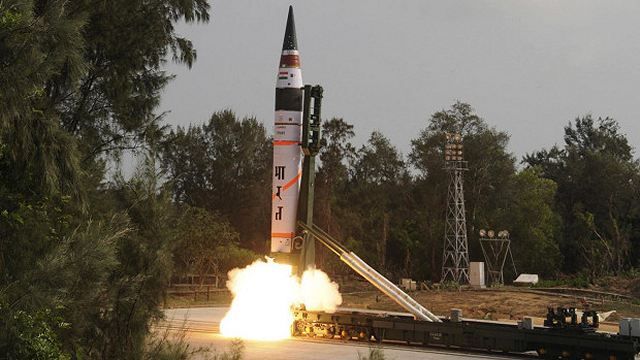Breaking news
India tested Agni-5 first long-range intercontinental ballistic missile able to carry nuclear warhea.
| a | |||
Defense News - India |
|||
| Thursday, April 19, 2012, 06:16 PM | |||
| India tested Agni-5 first long-range intercontinental ballistic missile able to carry nuclear warhead. | |||
| India
tested on Thursday, April 19, 2012, its first long-range intercontinental
ballistic missile (ICBM) able to carry a nuclear warhead deep into China
or Europe, bringing Delhi into a small club of nations with intercontinental
nuclear capability. |
|||
 An Agni V missile is launched from Wheeler Island off the eastern Indian state of Odisha on April 19, 2012. |
|||
|
Defense Minister A K Antony described the missile’s test as an
"immaculate success.” |
|||



















